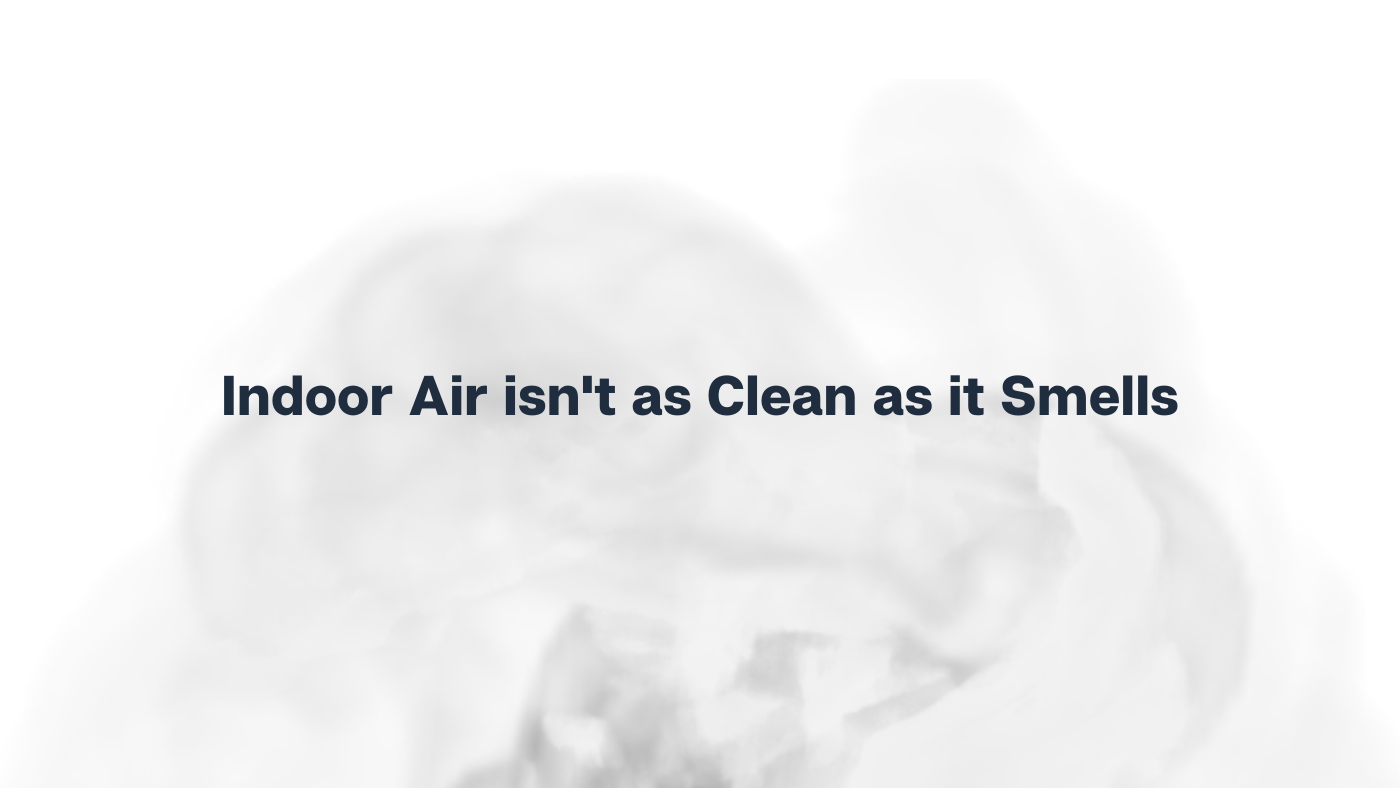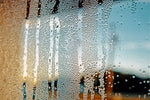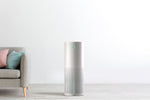Indoor Air isn't as Clean as it Smells

Written by Brittany German
Have you ever left your home for a day or two and come back to this weird odour, but nothing has actually changed in your home? What if I told you that odour was there before you left, but you just didn't notice? Humans are the most adaptable species on the planet, of course, our noses are not exempt from this! We actually develop a form of nose blind to the odours within a space that we are consistently in. We just don't realize it.
So what does this mean for the quality of our indoor air if we can't notice odours? It means the air is not necessarily as clean as it smells... More often than not, the air inside can be far more contaminated than the air outside, or in extreme external conditions, almost as bad.
Wildfire Smoke and Indoor Air Quality (IAQ)
It is currently wildfire season (extreme external conditions) in British Columbia, BC. Interior BC is experiencing dangerously high levels of air contamination:

The higher the number, the more severe the health effects can be to those exposed to this air for longer than 24 hours. Sensitive groups are more at risk. Residents of Kamloops and other areas in BC affected by wildfire smoke are at risk as the unhealthy air begins to affect their indoor air quality.
A healthy number for indoor air in British Columbia typically ranges around 5 but during wildfire season, with outdoor air reaching levels of 200 to 250, your indoor air can reach unhealthy levels in the low 100's without you even knowing. It's easily undetected, when you've spent the day outside smelling fire all day, coming into your house the air will comparatively smell much cleaner. However, without a way to monitor the IAQ, your nose may very well be fooling you.

Just because you don't smell the contaminants in the air, doesn't mean they aren't there. Especially when you've adapted to worse air.
How Does Smoke Affect Indoor Air Quality?
Staying indoors during wildfire season is safer, but not bulletproof. The contaminated outdoor air can enter your home through the windows, through your ventilation system, and through any cracks, joints, or openings. Your home is not completely sealed off from what's around it.
Smoke Inhalation Risks
Burning wood and other organic materials produce gases and fine particles. These particles can then enter your eyes or be inhaled. Once these particles are in your system, you'll likely begin experiencing some of the following symptoms:

For those in the sensitive groups that have chronic heart and lung diseases, the inhaled particles can be deadly.
What Can You Do To Make Wildfire Season Safer?
To lower the amount of smoke you may be inhaling during wildfire season, you can do the following:
- Purchase an air purifier with a TRUE-HEPA filter that reads/monitors and displays IAQ
- Use face masks
- Control air circulation using your HVAC system
- Avoid activities that will produce even more particulates
- Drink water
- Stock up on medication
The BCCDC says to "prepare for the worst" as this year's wildfires have the potential of being equally or more devastating than the previous 2016 and 2020 wildfires. Make sure you prepare for wildfire season accordingly; when you can't smell the smoke anymore, don't be fooled. Going nose blind happens when we are consistently exposed to the same smells. Don't just rely on your nose to judge your air quality. Using an air purifier that monitors and shows you accurate readings of the IAQ in addition to the above recommendations is a great way to ensure that your air inside is safe to breathe.
Back to Blog


